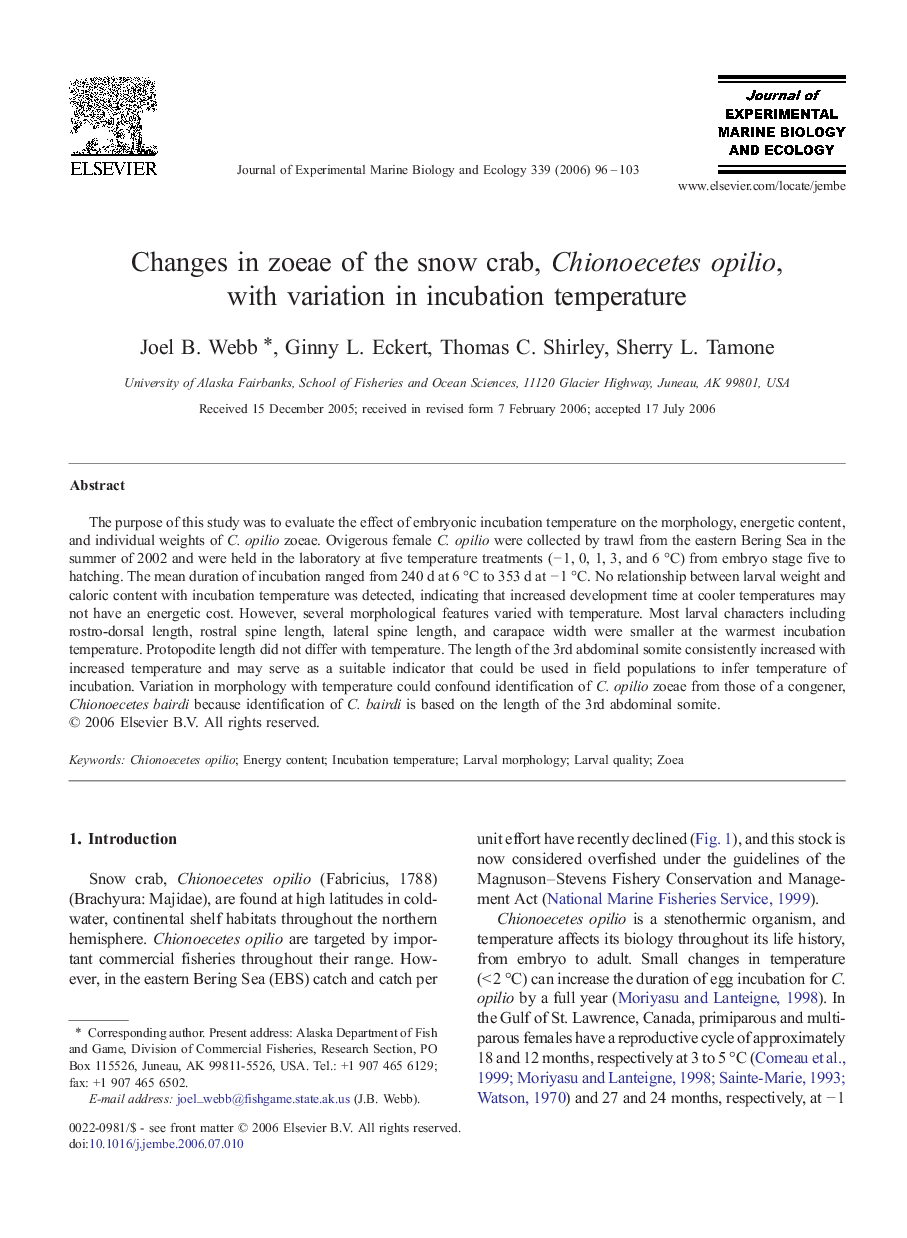| Article ID | Journal | Published Year | Pages | File Type |
|---|---|---|---|---|
| 4397911 | Journal of Experimental Marine Biology and Ecology | 2006 | 8 Pages |
The purpose of this study was to evaluate the effect of embryonic incubation temperature on the morphology, energetic content, and individual weights of C. opilio zoeae. Ovigerous female C. opilio were collected by trawl from the eastern Bering Sea in the summer of 2002 and were held in the laboratory at five temperature treatments (− 1, 0, 1, 3, and 6 °C) from embryo stage five to hatching. The mean duration of incubation ranged from 240 d at 6 °C to 353 d at − 1 °C. No relationship between larval weight and caloric content with incubation temperature was detected, indicating that increased development time at cooler temperatures may not have an energetic cost. However, several morphological features varied with temperature. Most larval characters including rostro-dorsal length, rostral spine length, lateral spine length, and carapace width were smaller at the warmest incubation temperature. Protopodite length did not differ with temperature. The length of the 3rd abdominal somite consistently increased with increased temperature and may serve as a suitable indicator that could be used in field populations to infer temperature of incubation. Variation in morphology with temperature could confound identification of C. opilio zoeae from those of a congener, Chionoecetes bairdi because identification of C. bairdi is based on the length of the 3rd abdominal somite.
